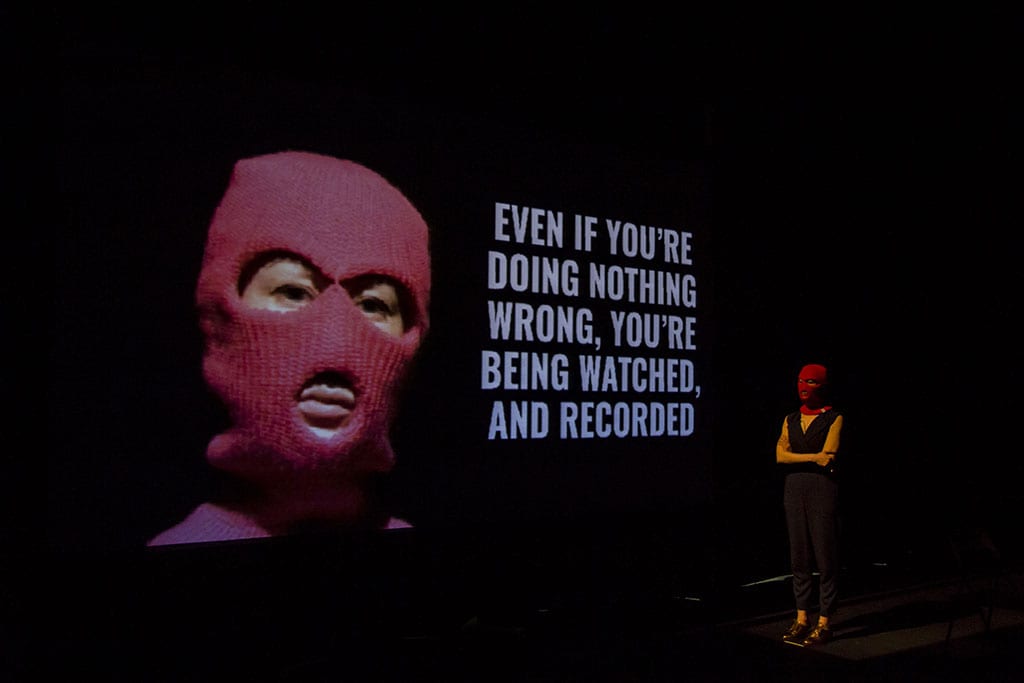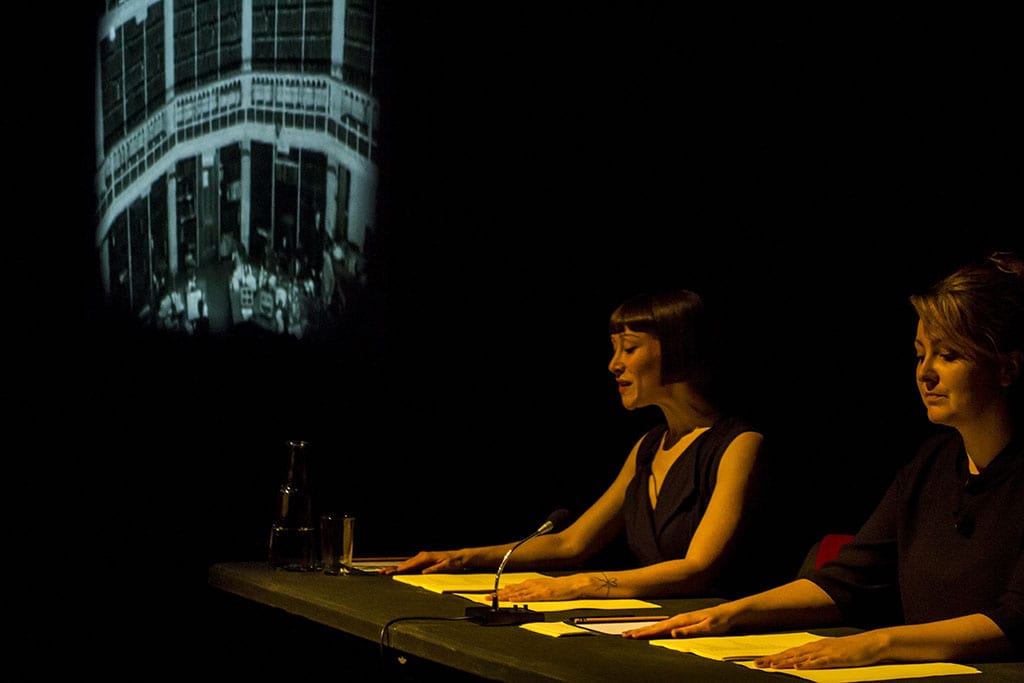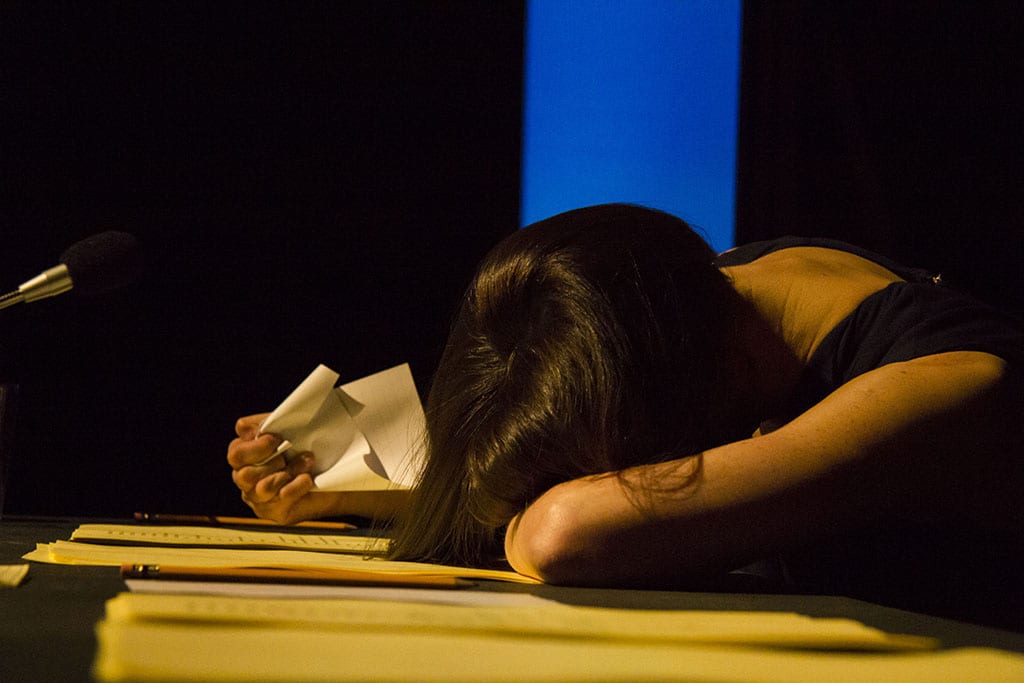Blending video, theatre, and agitprop, A Machine They’re Secretly Building explores cyber security and the commodification of privacy in a convincing performance. Proto-Type Theatre’s production straddles eras from 1943 to current politics, laying bare the dangerous equation of safety and surveillance in Western democracies. We enter the room to find the two performers, Rachel Baynton and Gillian Lees, seated at a desk covered with two neat piles of paper, their faces hidden by pink balaclavas. Their elocution is slow and soft, their gestures choreographed and as measured as those of typists as they turn the pages laid in front of them in perfect unison. In the first half of the play, they enumerate the slow assemblage of the parts of ‘the machine they’re secretly building’, in reference to Edward Snowden’s revelation of the National Security Agency (NSA)’s mass surveillance of citizens.
To the left of the stage is a screen, used to project archival footage or the actors, who record themselves with a camera situated behind them. The apparatus embodies the play’s demonstration of the webs of surveillance in which our everyday lives have become entangled. Acting in front of the audience and the camera, the performers expose the way an overarching gaze controls and, ultimately, shapes our every movement. The screen is an effective prop when used to support the play’s references to Orwell, Foucault and other thinkers’ analyses of panoptical systems of surveillance, but sometimes seems more of a liability than an asset. As the production unfolds, the screen occasionally tends to divide the space and detract the gaze from the performance when it is used to display information rather than as a dramatic tool. The soundtrack serves a similarly ambivalent function. Ambient 1940s music occasionally covers the actors’ voices, and makes for a curious contrast with the gravity of their speech. The use of soundtrack is more effective in the second half of the play, when it creates an eerie background for the performers’ monologues, as the play turns from a re-enactment of historical facts into a more openly political performance.
Gillian Lees leads the act, delivering a monologue where she fancies herself to be an anarchist, a rebel, ‘Chelsea Manning’ – before admitting that she, too, never reads the T&Cs at the end of her Internet contracts before signing them. Calmly, playfully, she wraps Rachel Baynton’s body in cellophane, until her stage partner is effectively tied up to her chair and rendered completely powerless – for her own safety, of course. When the two actors sit up, sporting foil hats, dreaming out loud of a time when money will be abolished, replaced with information, I think of the motto: ‘if you’re not paying for it, you are the product’. My state of paranoia leaving the play is aggravated by the random discovery, the morning after, of a profile in my name on a website I had no idea existed. Coincidence? I think not. You should go and find out.



